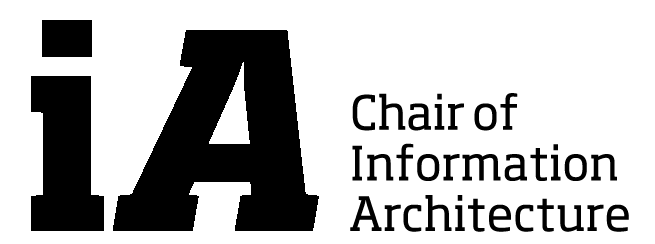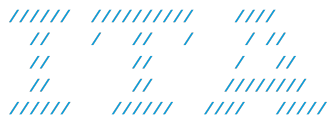In the course ‘New Methods in Urban Analysis and Simulation’ spatial configurations are analyzed throughout computational methods. In a series of theory lectures we explore how the design and planning of cities can be evidence-based by using scientific methods.
After a series of exercises you will be equipped with skills on modern software systems. In an integral project work, you will expand your knowledge in state-of-the-art, emerging spatial analysis and simulation methods like Space Syntax and environmental analysis with Ecotect. Based on the introduced methods you will be able to simulate and understand the effects of planning and design interventions. At the end of the course you will be capable of interpreting various analysis and simulation results and apply correspondent computational methods for your own planning projects. A solid knowledge of computational methods will be a key competence for you as future architects and urban planners.
We organize the course in cooperation with the chair of architecture and urban design (Prof. Kees Christiaanse). Accordingly, the thematic focus will be on urban neighborhoods of airports in Zurich and Amsterdam.
Lecture, HIT F22 – Value Lab
Exercise, HIT H12
Supervision:
Dr. Reinhard König
Estefania Tapias
Final Grades
For formal details see course catalog.
Integrated and interactive planning system for monitoring, evaluating and designing cities (link to internal post)
The project aimed to develop a framework for visualization of urban analysis and planning scenarios for data from various sources and for coupling of different simulation applications. With this framework it became possible to compare results of various analysis models, what in turn allowed to support and understand complex climate related decision making processes. There is a clear demand for such a framework, since it is important for various stakeholders to integrate climate change- aware planning strategies to their daily business. Visualisations are essential to communicate complex decisions and possible alternatives to the public to achieve broad consensus about societal transition processes. Based on the developed framework one main project result was a marketplace for apps to simulate and analyse climate mitigation processes. On the one hand side e.g. communities or stakeholders can choose relevant apps for specific planning purposes like monitoring, evaluating and designing cities from block to regional scales. On the other hand side the marketplace serves as fundament for the development of further apps. An appropriate template and detailed instructions was provided by this project. The described results can be used for innovative participatory planning concepts e.g. by simplify integration of feedback loops, by learning from other decision-making processes as simulations and process designs can be reused for other planning scenarios. Finally the framework allows to create a repository of past results of decision-making processes and to collect evaluations on the implemented projects.
Contact:
Dr. Reinhard König | reinhard.koenig@arch.ethz.ch | +41 (0)44 633 72 10
Gerhard Schmitt – Data Mining and Crowd Sourcing
1 Hashimoto, Mayumi
2 Kneer, Alexander
3 Kumakura, Eiko
4 Shea, Natasha
5 Yang, Chuan
1 Hilti, Luis
2 Wullschleger , Tobias
3 Kortemeier, Jakob
4 Benz, Katahrina
1 Li, Bingyi
2 Ernst, Sebastian
1 Deering, Danny
2 Lehmann, Mireille
3 Orsolini, Fabio
4 Steinmann, Jared
5 Tomova, Boriana
1 Toedtli, Sascha
2 Valcarce, Alvaro
1 Fischer, Fraenzi
2 Koschack, Jennifer
3 Perret, Myriam
4 Pietrzko, Natalie


